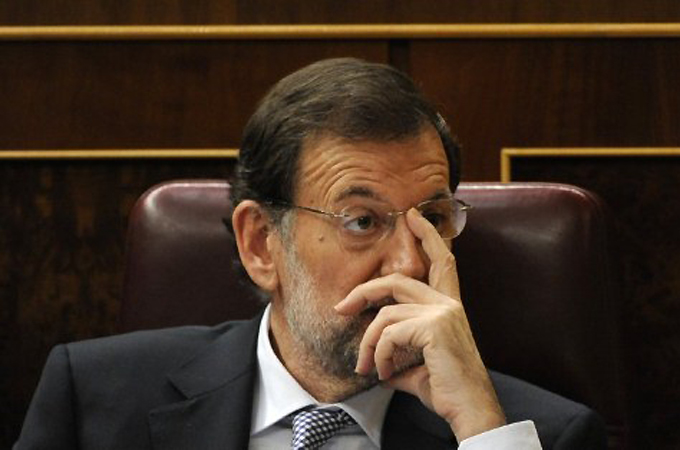Spain set to approve new austerity package
New conservative government looks to unveil belt-tightening programme amid massive unemployment and fears of recession.

 |
| With five million people unemployed and a fresh recession looming, Rajoy has promised deep spending cuts [AFP] |
Spain’s new conservative government is set to unveil its first austerity measures as it tries to reassure markets of its plan to get a grip on public finances and kickstart an economy saddled with massive unemployment.
With much of the country on holiday, Prime Minister Mariano Rajoy of the Popular Party was presiding over a cabinet meeting that will approve the first in what is expected to be a painful series of spending freezes or cuts.
Keep reading
list of 4 items‘Triple spending’: Zimbabweans bear cost of changing to new ZiG currency
Boeing hit with 32 whistleblower claims, as dead worker’s case reviewed
US imposes new sanctions on Iran after attack on Israel
Rajoy’s party won a sweeping victory over the Socialists in elections on November 20 and his government took power only last week.
All the ministers have been named, but many other senior positions have not yet been filled.
Like other troubled governments in Europe, Rajoy faces the delicate task of deficit reduction in a country whose economy is expected to sink back into recession.
The country’s jobless rate stands at 21.5 per cent, the highest rate of all 17 countries that use the euro.
Rajoy has repeatedly said he is determined to meet Spain’s commitment to cut its budget deficit to 4.4 per cent of GDP in 2012.
Last week, he said that if the outgoing government’s deficit forecast of six per cent for 2011 were correct, the new
government would have to achieve $22bn in deficit reductions in 2012.
Spending cuts
Fears over Spain’s public finances, and a banking sector heavily exposed to a property bubble that burst in 2008, have caused the country’s borrowing costs to soar amid fears it could end up suffering the same fate as bailed out Greece, Ireland and Portugal.
|
|
Spanish media said the only good news expected to come out of Friday’s cabinet meeting is a small cost of living increase for pensioners.
In May 2010, then Prime Minister Jose Luis Rodriguez Zapatero intduced the freeze, following growing international pressure and as the Greek debt crisis was worsening.
The pressure on Spain included a call from US President Barack Obama.
The rest of the measures expected on Friday are expected be an early taste of the bitter medicine to come.
They are thought to include a freeze on civil servant wages and hiring in most areas, except security forces.
As no budget for 2012 has yet been passed, Rajoy’s cabinet is expected to extend the 2011 spending blueprint into the first quarter of next year as it waits to get final figures on the economy.
A full-blown 2012 budget is expected in late March.
On Friday, ministries will reportedly be told how much of the money they originally had earmarked for 2011 they must now refrain from spending.